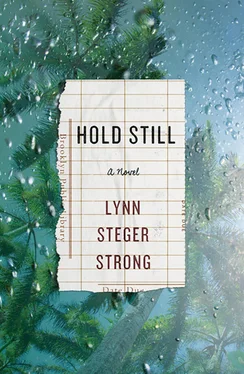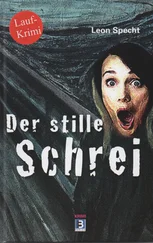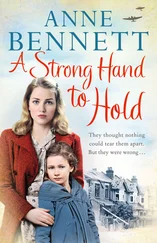An errant cousin from Indiana sent a bouquet of irises. Maya had him cremated and took an old surfboard from the garage and paddled him out past the break in the Atlantic and said goodbye to her dad. He was fifty-one. Aneurysm. She’d talked to him on the phone the day before and he’d said his head ached. That was as much advance warning as she got. And then there she was in that house again with no one and nowhere to go, besides the early morning runs barefoot in the sand, followed by long swims. Every morning she thought about not ever coming up out of the water, but then she would, crawling up out of the shore break and over the layer of shells back to her clothes and keys, back to the house that now belonged to her, walking from room to room, waiting for someone to come tell her how to live.
She drove to the public library just to have a place to go. She sat at one of the tables with people in their sixties and seventies on either side, also reading, sometimes talking to one another, just to be close to other people for some portion of the day.
It was there she got the job. She ran into her former middle school English teacher, who had since become high school vice principal. Mrs. Skinner had always been generous with Maya, had even gone on a date or two with her dad before coming to her senses and marrying someone much more practical and childless the next year. She was doughy, bleached-blond hair, flouncy shirts, and too-tight pants. They were in a pickle, she’d said to Maya. She said things like that. Two weeks before the start of the school year the AP English teacher had decided to extend her maternity leave. Maya had been an English major. She’d tutored in the drop-in center at school. She’d helped TA her senior year. She had nothing else to do. And just like that she was a long-term sub. Mrs. Skinner fast-tracked a temporary certification that would last her through the year. She did two weeks of teacher training at the community center a few miles from the school. They took personality tests and stood in circles talking about the sorts of learners they were, how that might be translated to communicating their goals to students. She was given a “mentor” in the form of a seventy-year-old freshman English teacher who showed Maya her laminated lesson plans that she’d been using since before Maya was born— The Odyssey , then To Kill a Mockingbird , multiple choice tests every Friday, and grammar diagramming every other week.
The first day Maya taught, she wore a blazer, regretting it immediately. She kept bumping her chin on the shoulder pads. She was terrified. But something happened once she was in front of that room. It was different than bars or parties, even classrooms, where she was in the back instead of up front in charge. She believed in what she was giving: books, communication, it was the world that saved her once.
Annie was in her second-to-last class of the day. Eighteen juniors. AP language and composition. Annie stayed separate in the back left corner of the room. Maya had to give vocabulary tests as decreed by the school board. To make them interesting, she did away with multiple choice. Instead, she said the words out loud and the students had to write them, then write the definitions, followed by a sentence in which they used the word in proper context. Agnostic was one of the words. An atheist without a spine , wrote Annie. She wasn’t even right, but Maya didn’t care. It was clever. It made Maya laugh. Annie answered the questions quickly and then drew little cartoons of her classmates next to certain of the words. Lugubrious. Capricious. Mercurial. Diffident . Her cartoons were always coupled perfectly with her peers.
It was a two-thousand-person high school and mostly Maya was left alone. She couldn’t bear to call any of the teachers by their first names and therefore referred to everyone as Mr. and Mrs., which only made them like her less. She ate lunch alone in her classroom instead of in the teacher’s lounge, where the women (the entire English department was made up of women) microwaved their Lean Cuisines and Hot Pockets and complained about the same cycle of students again and again. Maya felt both older and younger than she ever had. She hadn’t been living in this place, in that house, since she was thirteen. She was in charge of six classes of twenty-plus students each day. Exposing them to literature was a delicious and exciting task and one she felt she’d somehow tricked her way into. Some days the kids were restless and they whined and she hated them and wanted to just get in her car and drive out to the beach and run until her legs ached and then dive into the ocean till her skin was wrinkled and her limbs began to noodle and go limp, to lie out on the sand and go to sleep. But every morning, she got up before the sun and either ran or showered and brewed coffee. Sometimes she made up her lesson plans on the twenty-minute drive to work. And it was the best thing she’d ever done. She saw them see. Not all the time, not even most of it. But she was giving to them, and it didn’t even matter that much whether they took it. It was the giving that felt good.
At first Annie was a good, if not stellar, student. She always seemed to be halfway somewhere else. But sometime in the end of September, she began to drift more. Twice, Maya had to wake her as she’d fallen asleep in the middle of class. The second time, the same week she’d left all the words blank on a vocab test, Maya called in Annie’s mom and dad.
“She’s lazy.” Annie’s mother wore a bright pink dress with lines of yellow giraffes. Maya’d never met people like this, couldn’t believe they’d made this girl she liked so much. Rumor was that they’d owned half of South Florida at one point. They still owned a good portion of the Keys.
“Where did you go to school?” The dad was all business. He’d just opened the restaurant, pure vanity. The mom was a lawyer.
Maya looked down at her feet. “Harvard?”
“Right,” he said. “Well, then, you know the standards she should be holding herself to.”
“Oh, please, Tom, she’s too fucked up for Harvard.”
“She’s extremely bright,” said Maya, defensive suddenly.
“Exactly,” said the dad. He nodded at his wife, but she just shook her head, then fiddled through her purse.
“She’s also very young,” said Maya as the mom applied a thick layer of lipstick.
“And how old are you?” she asked.
“I don’t. .” Maya held on to the edge of her desk. She’d just turned twenty-two.
“Emily, please.” He looked at Maya apologetically, leaned forward, pushed the sleeves of his shirt up to his elbows, and placed them on his knees.
His voice lowered. “We’ve taken her to someone.”
“Total bullshit,” muttered the mother.
“Emily.” He stopped. He shook his head, as if clearing it from his wife. “He said maybe she’s sick somehow, maybe. .”
“She’s sick with her head up her ass.”
“He suggested lithium.”
Maya grabbed the Norton Reader off her desk and held it in her lap.
“He said bipolar, maybe. Maybe to settle her moods.”
“Lithium?” Maya only knew it sounded strong.
“She refuses to take it. But she seems like she responds to you.”
On the board were the objectives for the day: a summary of the first three acts of Antigone , constructing a firm thesis statement, how to guide your reader carefully.
“I don’t think I could tell her to take lithium.”
There were probably rules about this. They maybe talked about some of this at the staff development meetings, except Maya skipped most of them.
And then right after that, for a week, Annie wasn’t in class. Because she didn’t have any friends, there was no one Maya could ask. She still couldn’t call any of her colleagues by their first names, much less reach out about where Annie might have gone. She did say something one day to the class, casually, while taking roll. “Has anyone heard from Annie?” she said, just after she’d reached her name on the roster, trying to seem nonchalant.
Читать дальше












